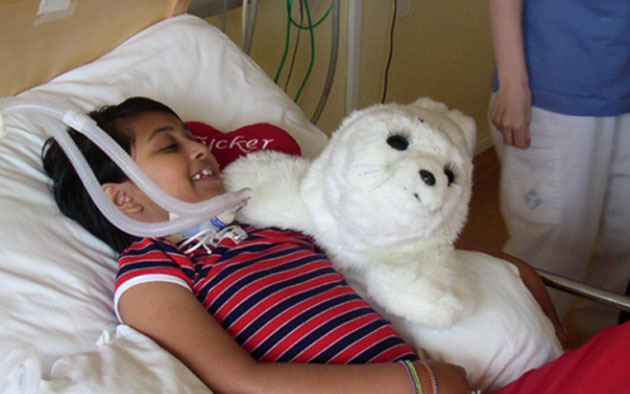| -- | September 5, 2017 Harvey’s Animals and Robot Seals By Patrick Watson Hurricane Harvey hit Texas hard. Much of Houston, our largest city, will be uninhabitable for months, maybe years. We had no damage where I live near Austin, but like most Texans, I have friends and relatives in the affected areas. We’re all doing what we can to help them—thanks to everyone pitching in from other states too. Watching the news coverage, I’ve noticed a common scene. Many flood victims bring dogs and cats with them on the Cajun Navy’s small boats. I haven’t seen any rescuers object. They seem to think nothing of it and even welcome the animals aboard. Leave them behind? Inconceivable. Pets are part of the family. This is another example of an economic trend I wrote about last year. It’s not reversing, and I doubt it ever will. 
Photo: AP True Priorities As I said, Harvey didn’t hit Austin, but I know what it’s like having to evacuate in a rush. Our area experienced several huge wildfires back in 2011. One got close enough that we could see the flames. As the wind picked up, firefighters told us to “Get out of there right now!” Given only minutes to grab what possessions you can—and thinking you will probably lose everything else—you learn your true priorities. Mine were some essential medicines and our three dogs. My wife, son, and I crammed them into our two vehicles and drove to safety. Fortunately, the fire went a different way and spared our house. But during that period when we didn’t know, did I regret leaving so much behind? No. Bringing the dogs was the right choice… and the Harvey photos show I’m not the only one who thinks that way. 
Photo: AP Long-Term Trend Last December, I wrote a Connecting the Dots story called “Investing in Our Furry Friends.” It discussed the way Americans increasingly apply their parental instincts to pets instead of children. One consequence of this trend is a colossal and growing amount of money spent on our pets. The American Pet Products Association estimates that in 2017, $69.4 billion will be spent on US pet care, up from $66.7 billion in 2016. The substantial growth in pet care stocks supports these numbers. Check out these one-year returns (as of 8/31/17): - Phibro Animal Health (PAHC) +58.7%
- Heska Corp. (HSKA) +83.2%
- Freshpet Inc. (FRPT) +52.6%
However, that doesn’t mean you can just throw darts and win. The sector had some losers too, such as... - Aratana Therapeutics (PETX) -41.4%
- Spectrum Brands (SPB) -18.0%
Normally, an ETF would be the right answer if you’re bullish on a sector but not sure which stocks will perform best. Unfortunately, there is no pet care ETF available to US investors, as far as I can tell. Worse, private equity firms are snapping up some of the once-public stocks from this segment. The two big pet retailers, Petco and PetSmart, are both private now. So, that’s aggravating. Here we have a really attractive, long-term theme, but actually investing in it is hard. What can you do? You can try to build your own ETF with a basket of stocks. You probably need at least 20 stocks to be well-diversified, and that will be tough. Some of the best performers are quite small. I’m constantly watching for opportunities in this segment, and my Yield Shark and Macro Growth & Income Alert subscribers will be first to know when I find them. Tiny Motors Before you enter any investment, you want to consider the risks. Among other things, the pet care industry faces the same risk we discussed last week for bus drivers. What if robots replace our pets? That’s not as nutty as it sounds. In fact, it’s already happening. 
Photo: Paro Therapeutics A Japanese company, Paro Therapeutics, makes a robotic baby seal that is apparently very lifelike. It reacts and moves much like a real animal. The company envisions it helping sick children and dementia patients. Clever Japanese inventions don’t always catch on in the West. Remember Tamagotchi? But technology improves. Eventually, could robotic dogs or cats take the place of our real ones? Would we even know the difference? In some ways, maybe not. Sufficiently advanced technology could probably make a robotic dog look, feel, and move like a real one. But that’s not the same as being a real dog. Dogs are a strange mix of predictability and randomness, and cats even more so. Half the time, I have no idea why my three cats do what they do, or what they’ll do next. I am sure of one thing, though: whatever a cat does, makes perfect sense to the cat. How do you duplicate that wonderful mixture in an artificial pet? Never say never, but to me it seems unlikely, at least in our lifetimes. That means the pet care industry ought to keep doing well for several more decades. We will still have dogs and cats. They will still need food, toys, bedding, healthcare and in the future other luxuries we can’t currently imagine. Best of all, our dogs, cats and other critters will keep making life better—just by being there. That’s what family does. See you at the top,  Patrick Watson P.S. If you’d like to help Harvey’s animal victims, here’s some information on charities working to save them. I’m personally supporting Austin Pets Alive, which is temporarily housing hundreds of animals evacuated from shelters in the disaster area.  | Subscribe to Connecting the Dots—and Get a Glimpse of the Future
We live in an era of rapid change… and only those who see and understand the shifting market, economic, and political trends can make wise investment decisions. Macroeconomic forecaster Patrick Watson spots the trends and spells what they mean every week in the free e-letter, Connecting the Dots. Subscribe now for his seasoned insight into the surprising forces driving global markets. |
 Senior Economic Analyst Patrick Watson is a master in connecting the dots and finding out where budding trends are leading. Patrick is the editor of Mauldin Economics’ high-yield income letter, Yield Shark, and co-editor of the premium alert service, Macro Growth & Income Alert. You can also follow him on Twitter (@PatrickW) to see his commentary on current events. Senior Economic Analyst Patrick Watson is a master in connecting the dots and finding out where budding trends are leading. Patrick is the editor of Mauldin Economics’ high-yield income letter, Yield Shark, and co-editor of the premium alert service, Macro Growth & Income Alert. You can also follow him on Twitter (@PatrickW) to see his commentary on current events.
Share Your Thoughts on This Article

Use of this content, the Mauldin Economics website, and related sites and applications is provided under the Mauldin Economics Terms & Conditions of Use. Unauthorized Disclosure Prohibited The information provided in this publication is private, privileged, and confidential information, licensed for your sole individual use as a subscriber. Mauldin Economics reserves all rights to the content of this publication and related materials. Forwarding, copying, disseminating, or distributing this report in whole or in part, including substantial quotation of any portion the publication or any release of specific investment recommendations, is strictly prohibited.
Participation in such activity is grounds for immediate termination of all subscriptions of registered subscribers deemed to be involved at Mauldin Economics’ sole discretion, may violate the copyright laws of the United States, and may subject the violator to legal prosecution. Mauldin Economics reserves the right to monitor the use of this publication without disclosure by any electronic means it deems necessary and may change those means without notice at any time. If you have received this publication and are not the intended subscriber, please contact [email protected]. Disclaimers The Mauldin Economics website, Yield Shark, Thoughts from the Frontline, Patrick Cox’s Tech Digest, Outside the Box, Over My Shoulder, World Money Analyst, Street Freak, Just One Trade, Transformational Technology Alert, Rational Bear, The 10th Man, Connecting the Dots, This Week in Geopolitics, Stray Reflections, and Conversations are published by Mauldin Economics, LLC. Information contained in such publications is obtained from sources believed to be reliable, but its accuracy cannot be guaranteed. The information contained in such publications is not intended to constitute individual investment advice and is not designed to meet your personal financial situation. The opinions expressed in such publications are those of the publisher and are subject to change without notice. The information in such publications may become outdated and there is no obligation to update any such information. You are advised to discuss with your financial advisers your investment options and whether any investment is suitable for your specific needs prior to making any investments.
John Mauldin, Mauldin Economics, LLC and other entities in which he has an interest, employees, officers, family, and associates may from time to time have positions in the securities or commodities covered in these publications or web site. Corporate policies are in effect that attempt to avoid potential conflicts of interest and resolve conflicts of interest that do arise in a timely fashion.
Mauldin Economics, LLC reserves the right to cancel any subscription at any time, and if it does so it will promptly refund to the subscriber the amount of the subscription payment previously received relating to the remaining subscription period. Cancellation of a subscription may result from any unauthorized use or reproduction or rebroadcast of any Mauldin Economics publication or website, any infringement or misappropriation of Mauldin Economics, LLC’s proprietary rights, or any other reason determined in the sole discretion of Mauldin Economics, LLC. Affiliate Notice Mauldin Economics has affiliate agreements in place that may include fee sharing. If you have a website or newsletter and would like to be considered for inclusion in the Mauldin Economics affiliate program, please go to http://affiliates.ggcpublishing.com/. Likewise, from time to time Mauldin Economics may engage in affiliate programs offered by other companies, though corporate policy firmly dictates that such agreements will have no influence on any product or service recommendations, nor alter the pricing that would otherwise be available in absence of such an agreement. As always, it is important that you do your own due diligence before transacting any business with any firm, for any product or service. © Copyright 2017 Mauldin Economics | -- |
